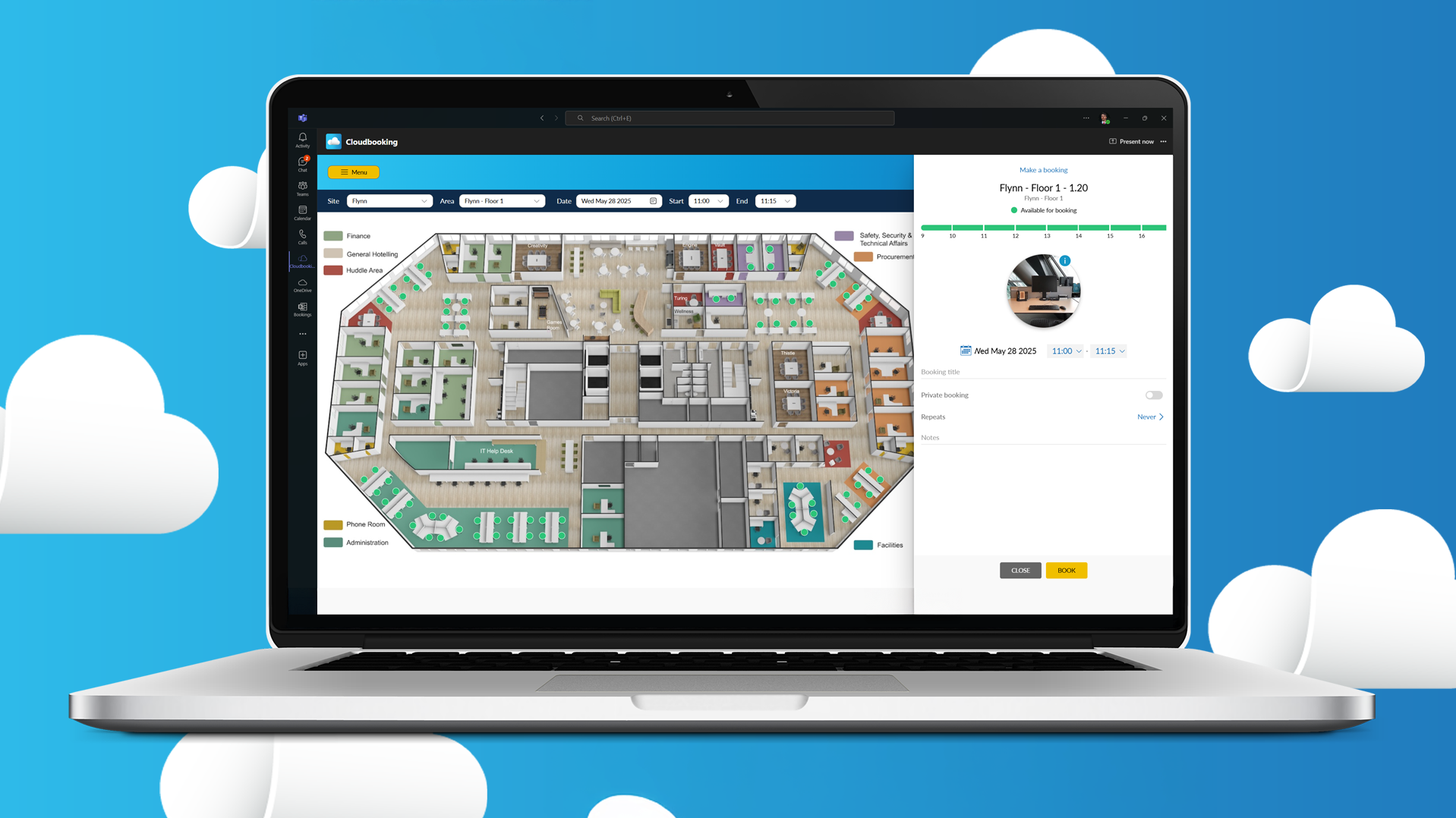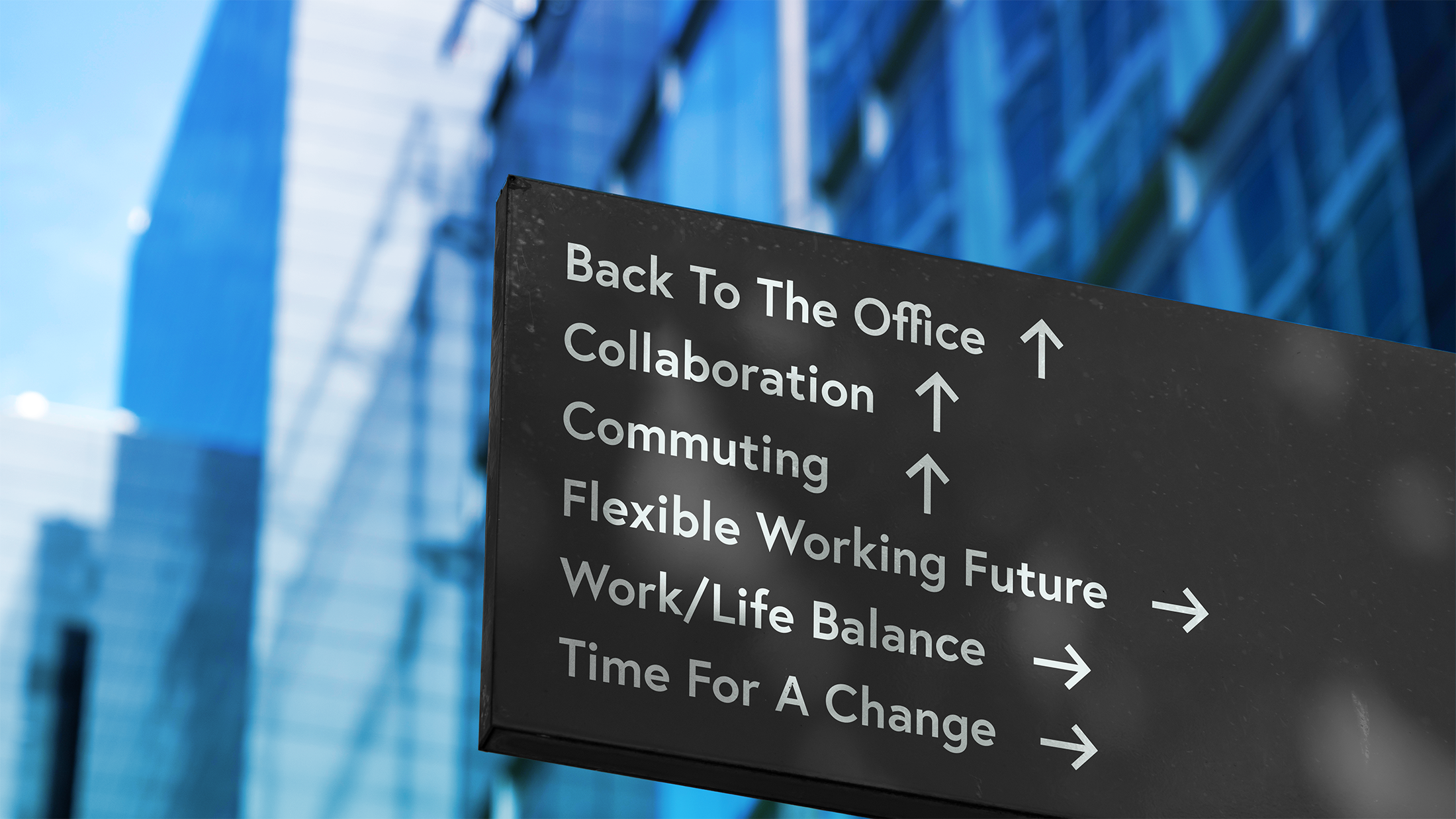
When utilized effectively, your desk booking system should promote flexibility, autonomy, and collaboration. However, moving to a desk booking system can be challenging for organizations, especially if employees previously had permanent desks. Change can be difficult, and some potential pitfalls must be avoided when integrating a new desk booking system. This post will highlight 6 of the most common pitfalls organizations face and explain how to overcome them.
Get a free demo
Enquire about a no-obligation demo today and get an exclusive hybrid working research paper — for free. Created in partnership with YouGov, this invaluable guide provides essential insights into developing your own effective hybrid strategy. Click below.
1. No clear understanding of why you need a desk booking system
If you have no clear understanding of why you need a desk booking system, you are setting yourself up for failure. Your desk booking system should be a tool that meets both business and employee needs. How can it do this effectively if you are not even sure what these are?
There are many reasons why organizations decide to switch to a hot-desking system. These are the most common:
- To improve space utilization
- To reduce operation costs
- To promote flexible working
- To promote collaboration
- To promote employee autonomy
- To create a modern workplace that appeals to, and attracts, talented professionals
- To create a positive workplace culture that promotes employee wellbeing and increases staff retention
The concept of hot-desking has been around for decades and, unfortunately, has got some bad press. The process can generate chaos and misery if not facilitated appropriately. Employees can be reluctant to change and often view hot-desking as nothing more than a cost-cutting measure implemented by employers to improve space utilization.
However, modern hot-desking systems are more than simply a solution to space utilization. The contemporary term for hot-desking is workplace hotelling. This is because technology enables workspaces to be pre-booked, which overcomes employees’ longstanding issue of showing up to work unable to find an appropriate desk near their colleagues.
This is why you need a desk booking system, and the one you choose should meet the needs of both your business and its employees. Once you are clear about why you need a desk booking system, you can ensure you have the right tools at hand.
2. No proper review of which desk booking system is right for your business
This follows on from the previous point. You should first be clear about why you need a desk booking system. It is then vital to review solutions from different providers to ensure the option you choose will cater to your business and its employees’ needs.
The wrong desk booking system will likely result in the chaos and misery associated with traditional hot desking systems. The technology behind desk booking systems is designed to overcome these problems, so your chosen system must meet your needs.
Integrating a new desk booking system effectively depends on your ability to get everyone on board. If you do not research the best system for your business before investing, you may find your employees reject it. Remember, you are looking for a solution, not a product that creates more problems than it was designed to resolve.
How can you ensure you have the right solution? First, make a checklist of all the essential features and perhaps some desirable ones too. Shop around to see what solutions are readily available. Compare the features and prices of different options. Look at customer reviews to gauge satisfaction rates and read testimonials to see how a product overcame other businesses’ problems and met their needs.
Contact providers to find out more information and ask any questions you may have. A good provider will offer you a product demonstration and perhaps even a free trial. A free trial is a fantastic way to get to know the product and its features. Try it out to see if it is the right fit for your business.
3. Delivering a standalone rather than a fully integrated system
There are several problems with traditional, standalone desk booking systems. These types of solutions are incredibly limited and, as a result, lead to additional work, cost and often generate unwanted outcomes such as double booking and no-shows.
In contrast, a fully integrated desk booking system will work seamlessly with other workplace management systems and business applications. This means that it can be implemented with little to no staff training and will not burden your IT team unnecessarily. Because integrated systems work seamlessly with your business applications, bookings can be made quickly, and admin and facilities staff will have all the information they need.
Employees will be able to access all the information they need in real-time to make the most appropriate booking, which will reduce disappointment and no-shows. An integrated system provides additional resource management capacity, such as visitor bookings, catering services, etc. The relevant people will be able to access the system from multiple devices and locations to streamline the entire process.
This streamlined solution with integrated software applications is ideal for companies operating across multiple sites. It provides a straightforward solution for all aspects of workplace management, which means ease of implementation, reduced costs, and more efficient operations.
4. Ignoring employee health, wellbeing, and workplace culture when integrating a new desk booking system
When implemented effectively and for the right reasons, workplace hotelling should aim to improve the workplace culture. It should promote flexibility, autonomy, and collaboration. It should consider employees’ needs and be so effective that it encourages talent into the organization.
So how can your desk booking system promote employee health, wellbeing, and positive workplace culture? Begin with seeking employee feedback before implementing new strategies – find out your workers’ needs and concerns. Create different bookable spaces to meet varying needs, such as private pods for quiet work, team stations, comfortable areas, huddle spots, and meeting rooms. Make sure you cater to employees with disabilities or specific conditions that require adaptations to their workspace.
Finally, ensure your desk booking system caters to your employee needs. Please choose the right solution that is easy to use, allows them to book in advance, see where colleagues will be working and find quiet spaces.
When you involve your workforce in the change and demonstrate that you care about their needs and wellbeing, you are much more likely to get them on board and ensure a seamless integration process.
5. Not enabling employees to self-manage (again through integrated systems)
An integrated system allows employees to self-manage, which gives them autonomy and a greater sense of control over their work. Outdated, standalone systems managed by reception or admin staff add to these employees’ workload and promote the negativity associated with traditional hot desking systems.
When employees can view and book their workspace using an integrated system, they have control over where, when, and with whom they work. This will make it much easier to integrate the system because everyone will be on board.
When employees have no control over where they work, productivity declines. This is both because employees are dissatisfied and teams are unable to collaborate effectively. By choosing an integrated system that allows employees to self-manage, you can ensure your workplace hotelling system functions as it was meant to.
6. Believing all employees have the same needs of a desk booking system.
If you believe all employees have the same needs of a desk booking system, you will end up with a one-size-fits-all solution that actually serves next to no one. As mentioned previously, it is a good idea to consult with your workforce before implementing a new desk booking system. Doing this, and listening to the feedback, will ensure the end product is much easier to integrate.
What questions should you be asking your employees? Begin by gauging the general feeling towards workplace hotelling. Understanding your employees’ concerns can help you find a desk booking system that addresses these. It will be easier to get people on board if you can demonstrate your technology is overcoming perceived problems.
Next, determine the working needs of different individuals in your organization. While some will work predominantly independently, others will collaborate more and need to be seated near their teams. Similarly, different types of workspace will be required to meet differing needs.
Because your employees have different workspace requirements, your desk booking system must have multiple features to ensure everyone’s needs are met. An integrated approach will allow workers to communicate with their teams effortlessly and book the appropriate space. It will enable those looking for a quieter workspace to see which areas are busier. It will allow managers to account for their teams. It will provide facilities staff with all the information they need to do their job effectively.
Now you know the potential pitfalls of integrating a new desk booking system, you can take the appropriate action to avoid these. Be clear about why you need a desk booking system, shop around for the best integrated system and make sure you keep employees’ needs at the forefront of the entire process. By following this advice, you will ensure a smooth transition to workplace hotelling.


